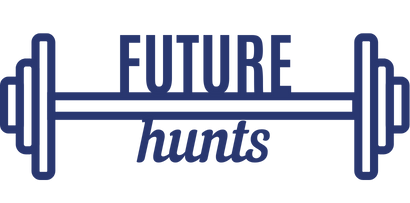In an increasingly digital world, intelligent technology solutions are driving innovation across industries, enhancing efficiency, and improving decision-making. These solutions harness advanced technologies like artificial intelligence (AI), machine learning (ML), the Internet of Things (IoT), and big data analytics to solve complex problems, automate processes, and deliver personalized experiences. Whether it’s revolutionizing healthcare, optimizing business operations, or enhancing customer interactions, intelligent technology is reshaping the landscape of modern industries.
1. What Are Intelligent Technology Solutions?
Intelligent technology solutions refer to the application of advanced computing technologies designed to mimic human intelligence, automate tasks, and optimize outcomes. These systems can learn from data, adapt to new situations, and make real-time decisions with minimal human intervention. Technologies such as AI and machine learning are at the core, enabling machines to analyze large volumes of data, recognize patterns, and provide actionable insights.
From smart homes that automatically adjust lighting and temperature to self-driving cars navigating traffic, intelligent technology is increasingly embedded in everyday life. Businesses are also leveraging it to enhance their operations, improve customer service, and streamline processes.
2. Key Components of Intelligent Technology
- Artificial Intelligence (AI): AI enables machines to perform tasks that would normally require human intelligence, such as visual perception, speech recognition, decision-making, and language translation. In business, AI is used for predictive analytics, customer support chatbots, and autonomous operations.
- Machine Learning (ML): A subset of AI, machine learning uses algorithms to analyze data, learn from it, and make decisions without explicit programming. It’s widely used in industries like finance for fraud detection, healthcare for diagnostic tools, and marketing for personalized recommendations.
- The Internet of Things (IoT): refers to the integration of everyday devices with the internet, enabling seamless communication and data exchange between them. This connectivity powers innovations in smart cities, smart homes, and industrial automation, where systems can interact and adapt dynamically in real-time
- Big Data Analytics: With the ability to process and analyze massive amounts of data, big data analytics helps organizations uncover hidden trends, patterns, and correlations. This informs smarter decision-making and drives competitive advantage.
3. Applications Across Industries
Intelligent technology solutions are revolutionizing industries by automating processes, optimizing operations, and delivering enhanced customer experiences. Here are some notable applications across various sectors:
- Healthcare: AI and ML are transforming healthcare by improving diagnostics, personalizing treatment plans, and enhancing patient care. Predictive analytics helps in disease prevention and identifying at-risk populations. Robotic surgery, wearable health devices, and telemedicine are examples of how intelligent tech is making healthcare more efficient and accessible.
- Retail: In retail, AI-driven chatbots provide personalized shopping experiences, while inventory management systems powered by IoT ensure that products are always in stock. Retailers use big data analytics to understand consumer behavior, optimize pricing strategies, and improve marketing campaigns.
- Manufacturing: Intelligent technology in manufacturing has led to the development of smart factories, where machines communicate with each other to improve production efficiency. Predictive maintenance powered by IoT sensors can reduce downtime and prevent costly repairs, while AI-driven automation increases precision and reduces waste.
- Finance: AI and ML are crucial in financial services for detecting fraudulent transactions, enhancing risk management, and providing personalized banking experiences. Robo-advisors and algorithmic trading systems are revolutionizing investment strategies and portfolio management.
4. Benefits of Intelligent Technology Solutions
- Efficiency and Productivity: Intelligent technologies automate repetitive and time-consuming tasks, allowing employees to focus on higher-value activities. This leads to increased productivity and streamlined operations across industries.
- Data-Driven Decision-Making: By analyzing massive amounts of data in real-time, intelligent technology provides businesses with actionable insights that improve decision-making. This allows organizations to anticipate trends, optimize resources, and respond to changes more quickly.
- Cost Savings: Automation and optimization can lead to significant cost savings. Predictive maintenance in manufacturing, for example, reduces equipment downtime, while AI-driven customer service reduces the need for large call centers.
- Enhanced Customer Experience: AI-powered solutions like chatbots and personalized recommendations allow businesses to provide better customer service. These tools ensure that customers get fast and relevant responses, improving satisfaction and loyalty.
5. Challenges and Considerations
Despite the numerous benefits, implementing intelligent technology solutions comes with challenges. These include:
- Data Privacy and Security: With increased connectivity comes the risk of data breaches and cyberattacks. Ensuring that intelligent systems are secure and compliant with data protection regulations is critical.
- Integration with Legacy Systems: Many organizations face difficulties when integrating new technologies with existing systems. The complexity of merging legacy infrastructure with modern intelligent solutions requires careful planning and investment.
- Ethical Concerns: As AI and automation replace certain human roles, there are ethical concerns about job displacement. Additionally, the decision-making processes of AI systems need to be transparent and free from bias to avoid unintended consequences.
6. The Future of Intelligent Technology
The future of intelligent technology holds even more promise as innovations continue to emerge. Quantum computing could revolutionize industries by solving problems previously deemed unsolvable, while edge computing allows faster processing of data closer to where it’s generated. Additionally, 5G technology will further enhance IoT capabilities, enabling more robust, real-time communication between devices.
As businesses continue to adopt intelligent technology solutions, the key to success will lie in combining innovation with ethical considerations, security measures, and workforce upskilling. These solutions will not only transform industries but also shape the way we live and work in the future.
Conclusion
Intelligent technology solutions are no longer a vision of the future; they are a reality that is transforming industries and daily life. From AI and IoT to machine learning and big data analytics, these solutions are reshaping how businesses operate and how individuals interact with technology. As the potential of these technologies continues to unfold, embracing intelligent solutions will be crucial for organizations to stay competitive and thrive in a rapidly evolving digital world.
Read More : Why Mizukando is a Game Changer for Entrepreneurs



